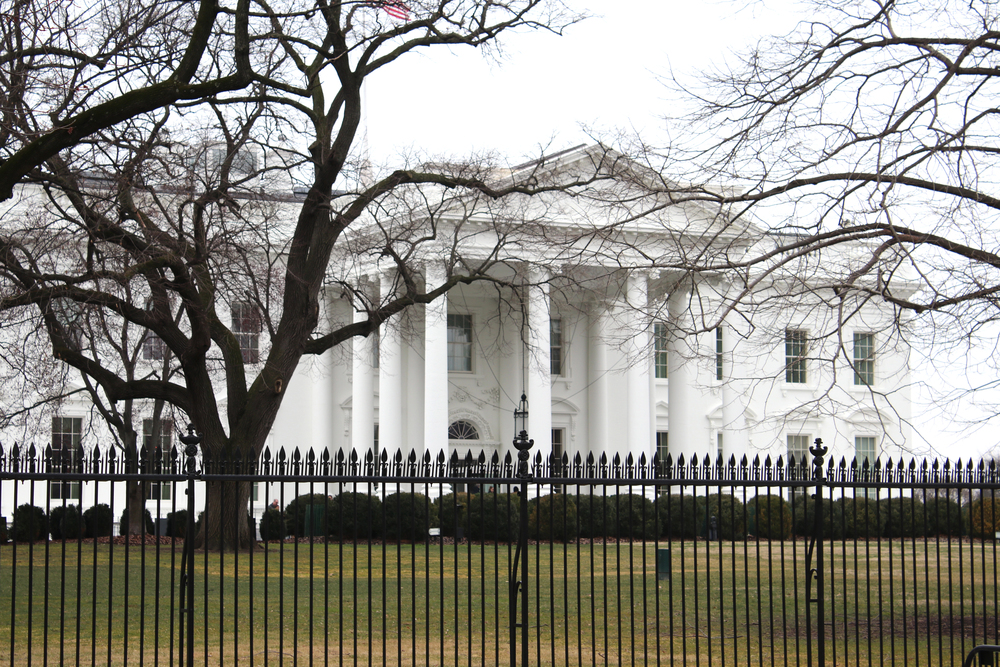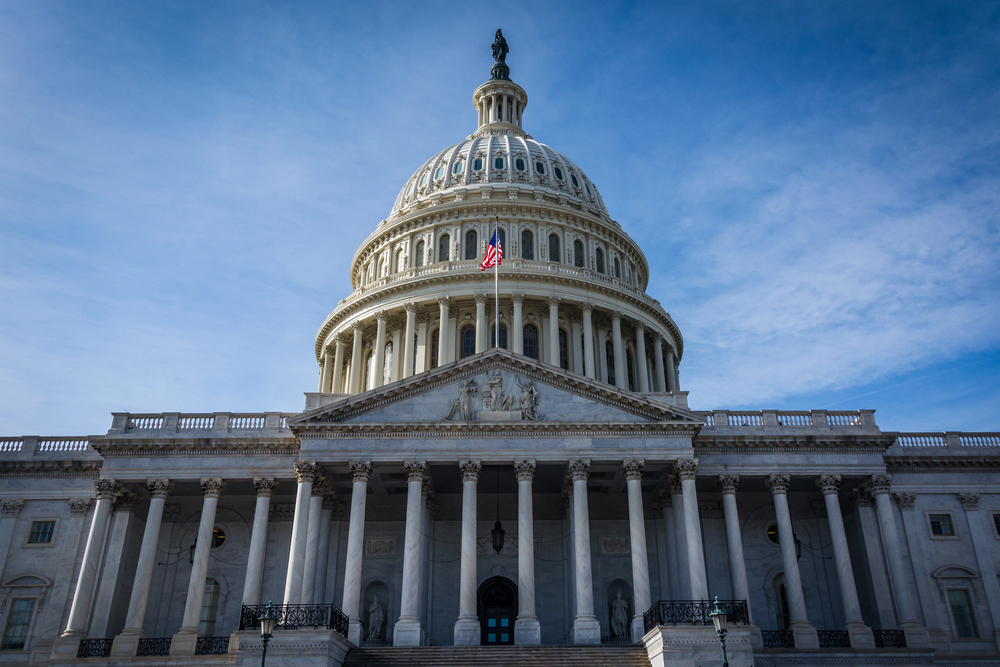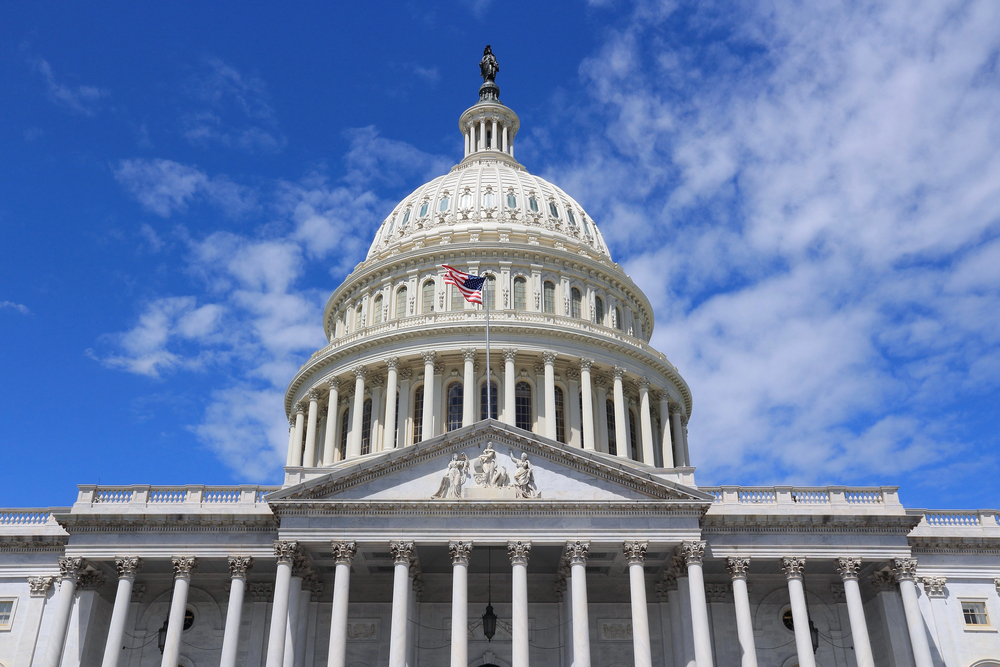Chairman Neal, Sen. McSally: Informed, Action-Oriented Politics

By: Jacquelyn Connelly
At the 2019 Big “I” Legislative Conference Breakfast, Sen. Martha McSally (R-Arizona) and U.S. House of Representatives Ways and Means Committee Chairman Richard Neal (D-Massachusetts) called for greater bipartisanship on Capitol Hill in order to make progress on key challenges facing Americans.
Prior to serving in Congress, Sen. McSally served 26 years in the U.S. Air Force, retiring in 2010 as a full Colonel. She was the first female fighter pilot to fly in combat and first to command a fighter squadron in combat in U.S. history.
“It’s part of our culture as veterans that we don’t walk by a problem,” Sen. McSally said. “If we’re complaining about something, we better be willing to do something about it. I never imagined I’d be doing this right now, but I’m purpose-driven, I want to make a difference, and I found myself frustrated with what was going on in D.C.”
In her keynote address, Sen. McSally, who was sworn in as a senator in January and previously represented Arizona’s 2nd Congressional District in the U.S. House of Representatives, called Washington, D.C. an “interesting place.” “People ask me all the time, ‘Are you having fun?’ The top core value of my life is integrity first, so my answer is, ‘It’s important.’”
“It can be very frustrating,” she admitted. “For so many people in D.C., their legacy is to self-perpetuate being here. I really believe we need people at the table who are thoughtful, who are making decisions based on facts, who try to understand what is in the art of the possible, and then get to work tirelessly to make it happen.”
In such a divided political climate, that’s often easier said than done. “I know we have some very different views, and we need to have those debates—that’s what our country was founded on,” Sen. McSally said. “But we don’t need to be vilifying each other. We don’t need to be plotting each other’s demise. We should learn from each other. We should challenge our own thinking. My mindset is, ‘I know where we disagree—can we find the place where the Venn diagram overlaps? What can move us to solve this problem?’”
When Sen. McSally speaks with her constituents about the issues they care about, she asks three questions: Is this a government issue? Is this a federal government issue? And does this literally take an act of Congress to fix?
“As you go meet with your members of Congress, don’t let them get away with, ‘I’m on a bill.’ The question is, ‘What are you doing to move it?’ Let’s be honest with ourselves. What can we actually get done in this environment in two years?” Sen. McSally pointed out. “Challenge them. Don’t let them blow smoke. Ask them the hard questions.”
In his keynote address, Chairman Neal also emphasized the importance of accountability and practicality in Washington, D.C. At a time when the media seems fixated on conflict on Capitol Hill, “I think our job in public life is not to entertain the American people—our job in public life is to educate the American people,” said Chairman Neal, who was first elected to the House in 1988 and has served as chairman of the powerful tax-writing Ways and Means Committee since January. “I understand the role conflict plays, but at the same time, I think there’s a time to lay conflict aside and try to address serious challenges.”
Chairman Neal discussed challenges like the labor participation rate, which he said has fallen from around 68% in the early ’90s to less than 63% today; the impact of the opioid epidemic on the American workforce; inadequate retirement savings, which remains a challenge for more than half of Americans; and failing infrastructure.
“Those are the sorts of issues we ought to be focused on, to try to pay attention to how we might offer a bit of a trampoline where you might hit bottom, but then you bounce back up into the mainstream of the economy,” he explained. “The Democrats used to be the party of aspiration and optimism. Our natural constituents in America are people in the middle class and those who want to get to the middle class. I try to consider these issues in a serious vein, and I work with Republicans on them when I can.”
Chairman Neal is the dean of both the Massachusetts Delegation and the New England Congressional Delegation. Prior to serving in Congress, he was mayor of Springfield, Massachusetts from 1984 to 1988. Over his 42-year career as an elected official, he said he’s succeeded “by looking people in the eye, trying to take a measure of how they really feel, returning phone calls—doing basic things every day, over and over again, and trying very hard to master the details of what is frequently arcane legislation.”
To that end, Chairman Neal said it’s never his goal to leave a room with the sense that he’s convinced someone. “When I leave a room, all I want them to say is, ‘He knows what he’s talking about,’” he said. “There are some issues you try to shape, and there are some issues that come to you and they’ve already been shaped. The question is how you move them forward to try to find a better sense of opportunity.”
Jacquelyn Connelly is IA senior editor.
Top left: U.S. House of Representatives Ways and Means Committee Chairman Richard Neal (D-Massachusetts)
Bottom right: Sen. Martha McSally (R-Arizona)










